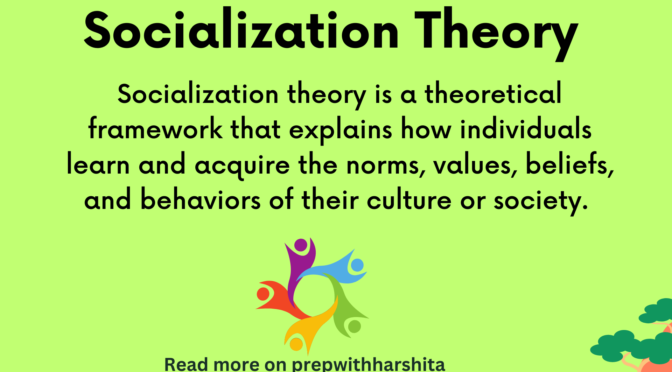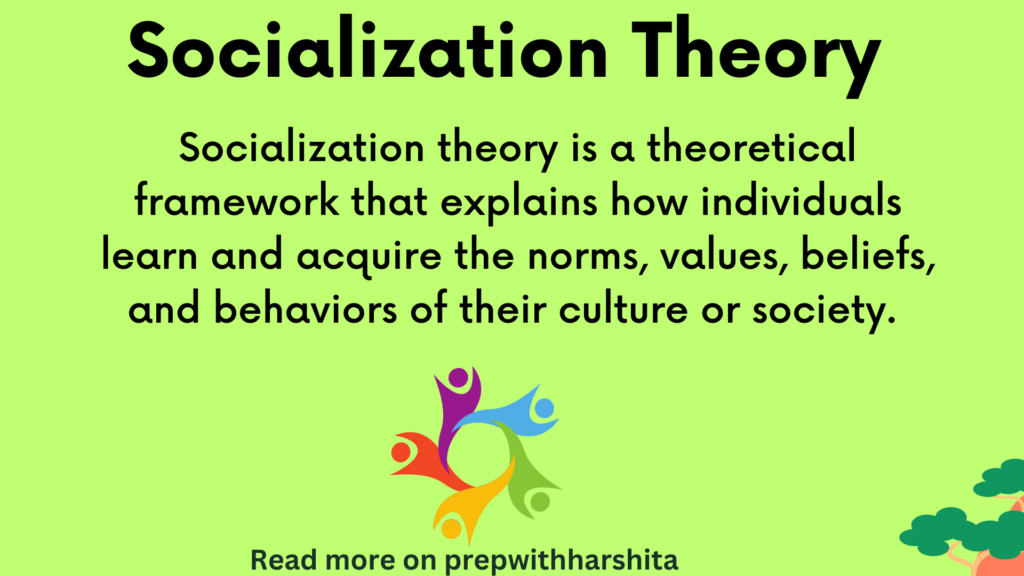Socialization is a lifelong process through which individuals acquire the knowledge, skills, attitudes, values, and behaviors necessary to function as members of a society. It is a multifaceted process that occurs through various social interactions, experiences, and institutions.
Here’s a detailed explanation of the concept and features of socialization:
- Concept of Socialization: Socialization refers to the process by which individuals learn and internalize the norms, values, roles, and expectations of their society or social group. It involves acquiring the cultural, social, and interpersonal competencies necessary for effective social functioning. Socialization shapes an individual’s identity, self-concept, and understanding of the world around them.
- Features of Socialization:
a. Learning: Socialization involves the acquisition of knowledge, skills, and attitudes through social interactions. It encompasses learning about language, social norms, customs, beliefs, and values. Individuals learn how to navigate social situations, interpret symbols, and understand social rules.
b. Cultural Transmission: Socialization is the primary mechanism through which culture is transmitted from one generation to another. It enables individuals to adopt and internalize the cultural practices, traditions, and beliefs of their society, contributing to the continuity and stability of cultural systems.
c. Role Development: Socialization helps individuals understand and internalize the roles they are expected to fulfill in society. Roles can include gender roles, occupational roles, familial roles, and societal roles. Through socialization, individuals learn the behaviors, attitudes, and responsibilities associated with these roles.
d. Social Control: Socialization contributes to social control by instilling norms, values, and rules that guide individuals’ behavior. It helps maintain social order and conformity to societal expectations. Internalizing social norms and values helps individuals regulate their own behavior and interact with others in socially acceptable ways.
e. Identity Formation: Socialization plays a significant role in the formation of individual and group identities. It helps individuals develop a sense of self and belonging within their social and cultural contexts. Socialization processes shape how individuals perceive themselves and how they are perceived by others.
f. Agency and Socialization: While socialization involves the transmission of societal expectations, individuals also exercise agency in the process. They actively interpret, negotiate, and respond to socialization messages, incorporating them into their own identities and beliefs.
g. Lifelong Process: Socialization begins in early childhood but continues throughout an individual’s life. It occurs through various agents of socialization, such as the family, education system, peer groups, media, and religious institutions. Socialization continues to shape individuals’ beliefs, attitudes, and behaviors as they encounter new experiences and social environments.
h. Impact of Socialization: Socialization has a profound impact on individuals and society. It influences their perception of the world, their attitudes towards others, and their ability to participate in social interactions. It contributes to the formation of social bonds, social cohesion, and the maintenance of social order.
Understanding the concept and features of socialization helps us appreciate its significance in shaping individuals and societies. Recognizing the influence of socialization allows us to critically examine the messages, norms, and values being transmitted, and work towards promoting inclusive, equitable, and socially just socialization processes.
Also Read : Difference between Primary and Secondary Socialization

Also Visit : Prep with Harshita



